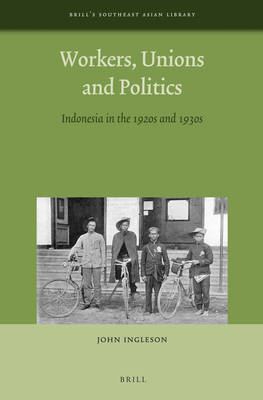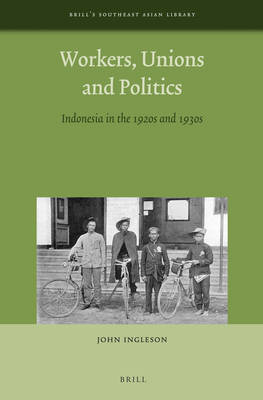
- Afhalen na 1 uur in een winkel met voorraad
- Gratis thuislevering in België vanaf € 30
- Ruim aanbod met 7 miljoen producten
- Afhalen na 1 uur in een winkel met voorraad
- Gratis thuislevering in België vanaf € 30
- Ruim aanbod met 7 miljoen producten
Zoeken
Omschrijving
In Workers, Unions and Politics. Indonesia in the 1920s and 1930s, John Ingleson revises received understandings of the decade and a half between the failed communist uprisings of 1926/1927 and the Japanese occupation in 1942. They were important years for the labour movement. It had to recover from the crackdown by the colonial state and then cope with the impact of the 1930s depression. Labour unions were voices for greater social justice, for stronger legal protection and for improved opportunities for workers. They created a discourse of social rights and wage justice. They were major contributors to the growth of a stronger civil society.
The experiences and remembered histories of these years helped shape the agendas of post-independence labour unions.
The experiences and remembered histories of these years helped shape the agendas of post-independence labour unions.
Specificaties
Betrokkenen
- Auteur(s):
- Uitgeverij:
Inhoud
- Aantal bladzijden:
- 370
- Taal:
- Engels
- Reeks:
- Reeksnummer:
- nr. 2
Eigenschappen
- Productcode (EAN):
- 9789004264465
- Verschijningsdatum:
- 30/01/2014
- Uitvoering:
- Hardcover
- Formaat:
- Genaaid
- Afmetingen:
- 163 mm x 239 mm
- Gewicht:
- 716 g

Alleen bij Standaard Boekhandel
+ 531 punten op je klantenkaart van Standaard Boekhandel
Beoordelingen
We publiceren alleen reviews die voldoen aan de voorwaarden voor reviews. Bekijk onze voorwaarden voor reviews.











